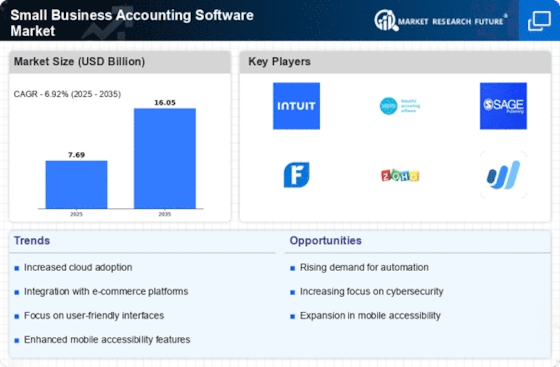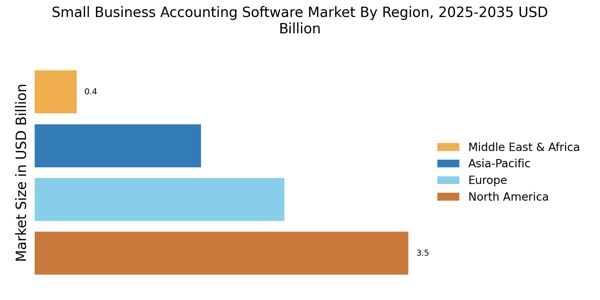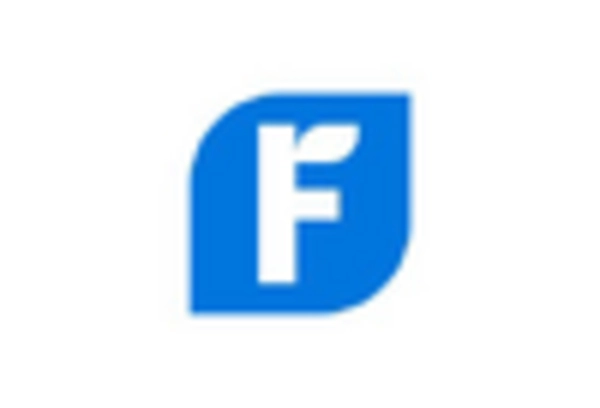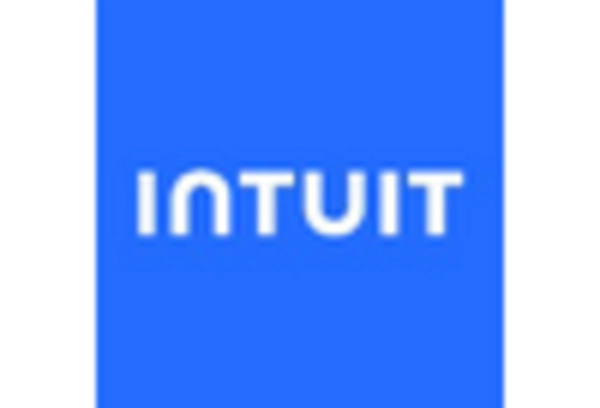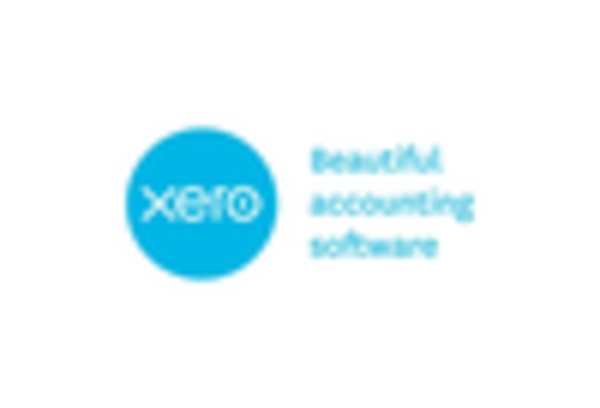Integration of Advanced Analytics
The Small Business Accounting Software Market is increasingly integrating advanced analytics capabilities into accounting solutions. This integration allows small businesses to leverage data-driven insights for better financial management. Approximately 65% of small businesses report that they are more likely to invest in accounting software that offers predictive analytics and performance tracking features. By utilizing these advanced tools, businesses can identify trends, forecast future revenues, and make informed decisions. The ability to analyze financial data in real-time enhances operational efficiency and supports strategic planning. As competition intensifies, the demand for accounting software that incorporates advanced analytics is likely to grow, positioning the Small Business Accounting Software Market for further expansion.
Emphasis on User-Friendly Interfaces
The Small Business Accounting Software Market is increasingly focusing on user-friendly interfaces to cater to a diverse range of users. As small businesses often lack dedicated accounting personnel, software that is intuitive and easy to navigate is becoming a priority. Research indicates that around 75% of small business owners prefer accounting solutions that require minimal training and offer straightforward functionalities. This trend is driving software developers to prioritize user experience in their design processes. By simplifying complex accounting tasks, these solutions enable small business owners to manage their finances more effectively. The emphasis on user-friendly interfaces is likely to enhance customer satisfaction and retention within the Small Business Accounting Software Market.
Rise of Remote Work and Digital Solutions
The Small Business Accounting Software Market is witnessing a significant shift due to the rise of remote work. As businesses adapt to flexible work environments, the demand for digital accounting solutions that can be accessed from anywhere is increasing. This trend is reflected in the fact that nearly 60% of small businesses have adopted cloud-based accounting solutions to facilitate remote operations. Such software not only allows for seamless collaboration among team members but also ensures that financial data is secure and accessible. The convenience of managing finances from various locations is becoming a critical factor for small businesses, thereby propelling the growth of the Small Business Accounting Software Market. As remote work continues to be a prevalent model, the need for robust and user-friendly accounting software is expected to expand.
Growing Importance of Mobile Accessibility
The Small Business Accounting Software Market is increasingly recognizing the importance of mobile accessibility. As mobile device usage continues to rise, small businesses are seeking accounting solutions that can be accessed via smartphones and tablets. Approximately 55% of small business owners express a preference for mobile-friendly accounting software that allows them to manage their finances on the go. This trend is indicative of a broader shift towards mobile-first strategies in business operations. By offering mobile accessibility, accounting software providers can enhance user engagement and streamline financial management processes. The growing demand for mobile solutions is likely to drive innovation and competition within the Small Business Accounting Software Market.
Increased Demand for Financial Transparency
The Small Business Accounting Software Market is experiencing a notable surge in demand for financial transparency among small businesses. As stakeholders increasingly seek clarity in financial reporting, accounting software that offers real-time insights and comprehensive reporting features becomes essential. This trend is underscored by the fact that approximately 70% of small businesses prioritize transparency in their financial dealings. Consequently, software solutions that facilitate easy access to financial data and enhance decision-making processes are gaining traction. The ability to generate detailed financial reports and dashboards not only aids in compliance but also fosters trust among clients and investors. This growing emphasis on transparency is likely to drive innovation within the Small Business Accounting Software Market, as providers strive to meet the evolving needs of their clientele.


